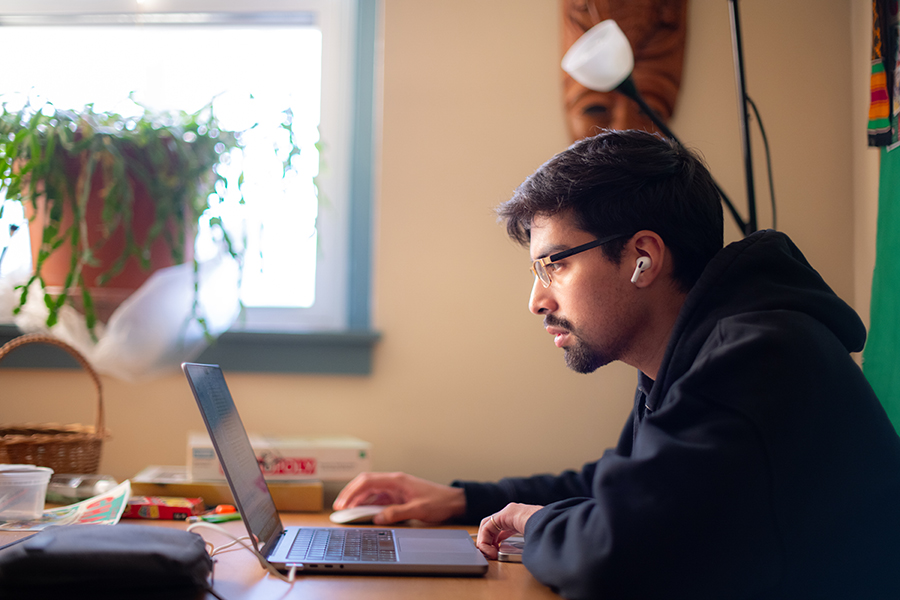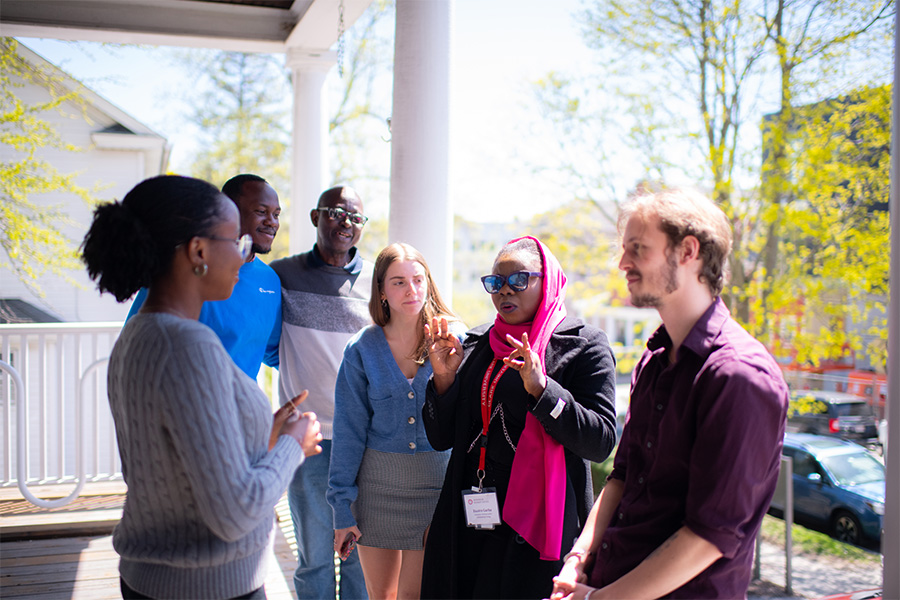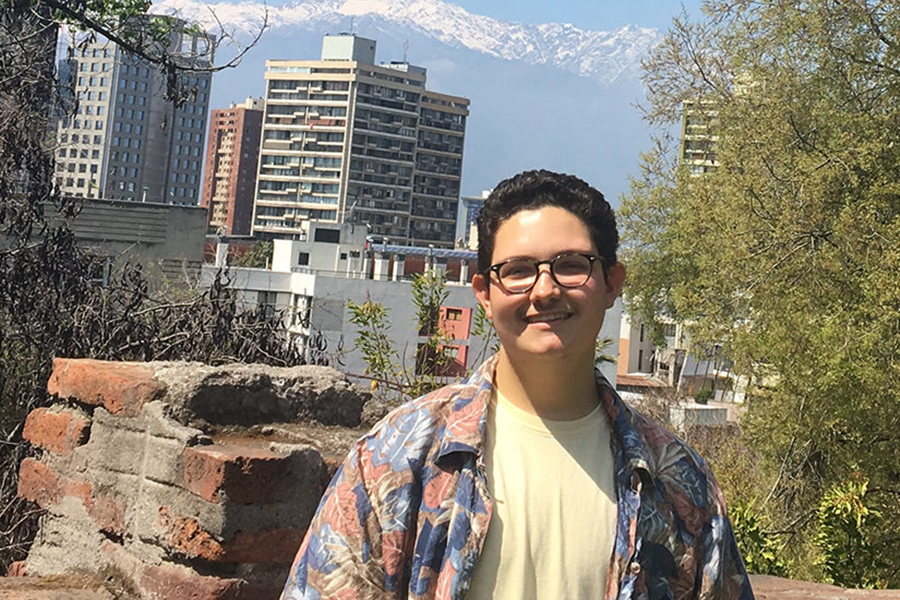Certificate in Refugees, Forced Migration, and Belonging

Displaced persons are on the move, on a global scale. Respond with understanding, skills, and experience.
The Clark University Department of Sustainability and Social Justice offers certificate programs that evaluate local and global perspectives to develop just and equitable best practices for displaced population support in North America, Europe, and other key refugee-receiving regions.
Our Philosophy
Rather than focus solely on emergency management or international refugee policy, we believe that understanding global migration — voluntary or forced — requires a comparative and historically-grounded approach that includes the perspectives of different actors.
Students benefit from Clarks’ culturally rich, diverse, international learning community as they grow their understanding of displacement and forced migration issues, and the study the complex social, political, economic, and environmental factors shaping population movement.
We take a participatory, community-based, and refugee-centered approach to our work. We prioritize the experiences of affected populations, including migratory and settled groups, and we work to identify strategies to remake belonging.
One of our key areas of focus is connecting migration, forced migration, and refugee studies to debates about development and environmental change.
Two ways to learn

100% Online/Asynchronous Graduate Certificate
Recommended for practicing mid-career professionals. Asynchronous online delivery is Ideal for students unable to attend courses on the Clark campus – learn from where you are, when you choose, and build a networked community of connections with your cohort.
Program Start: Fall Semester
Three Required Courses:
- Fall: Refugees, Forced Migration and Belonging (IDCE 30297)
- Spring: Forced Migration and the City (IDCE 30107)
- Summer: Research Methods for Forced Migration (IDCE 30108)

In-Person Graduate Certificate
Ideal for local students at any level of professional experience. Choose from a blend of in-person and online courses.
Program Start: Spring, Summer, or Fall semesters
Three Required Course Units: 1 core course: Refugees, Forced Migration, and Belonging
+ 2 Electives
Sample Courses:
- Forced Migration and the City
- Research Methods for Forced Migration
- Humanitarian Assistances in Complex Emergencies/Disasters
- Trafficking: Globalization and Its Illicit Commodities
- Seeing Like a Humanitarian Agency
- People on the Move Research Studio
- Education and Youth in a Global Context
- Theory and Methods in Genocide and Human Rights Studies
- Human Rights Strategy, Tactics, and Practice
- Cultures in Exile
- Internship
- Directed Study
Experienced Faculty, Committed Students
Learn within the department’s global network of researchers, scholars, practitioners, and activists who will help you turn your learning into action in our communities, across the country, and around the world.
Student and faculty investigators pursue provocative, far-reaching questions:
- How do boundaries and borders that shape movement emerge, and how they are maintained, controlled, and transformed?
- How do policies and organizations designed to manage or assist migrants, refugees, and displaced people intersect with ideas about citizenship, integration, sustainability, gender, development, and belonging?
- What is the role of ethnic, racial, and religious identities in spurring movement and in shaping the reception of newcomers by societies?


Learning Beyond the Classroom
Outside of class, you will have the opportunity to learn directly from local and global refugee services communities through experiential learning, research, and internships. Our students have investigated topics such as refugee participation in community development initiatives, refugee access to higher education, and refugee livelihoods in the city of Worcester.
Our partnerships with refugee stakeholders help you develop a complex understanding of refugees as locally sited but globally situated. They include:
- Participate in experiential research with refugee organizational partnerships in Amman, Beirut, Cairo, Casablanca, Thessaloniki, Athens, and Kampala.
- Produce important data and information for Worcester stakeholders.
- Work with refugee organizations to identify best practices for service organizations to address their needs and priorities.
Professional skills for greater impact, better outcomes
We equip our students with the key skills to identify why migration occurs, how it occurs, how policies that govern the political response to migration can be improved, and how assistance institutions can be strengthened.
Students develop critical methodological skills for work with mobile, hidden, and vulnerable populations:
- Project management for social change
- Grant writing
- Qualitative, quantitative, and narrative research and analysis
- Knowledge of partnership approaches and communication competency
- Outreach to community organizations
Knowledge and Skills into Action
Whatever work you choose to pursue — policy, advocacy, or service — your contributions are informed by a deeper understanding of the dynamic and interrelated processes of displacement, and the ways in which individuals experience them.
Practitioners may work locally, nationally, and internationally in the following fields:
- Refugee and forced migration policy
- Humanitarian relief organizations
- Refugee settlement, resettlement, and integration organizations
- International NGOs
- National refugee resettlement agencies
Example organizations:
- Refugee and Immigrant Assistance Center
- National Refugee Resettlement Agencies and local affiliates
- State Department Bureau for Population, Migration and Refugees
- Migration Policy Institute
- United Nations High Commission for Refugees

